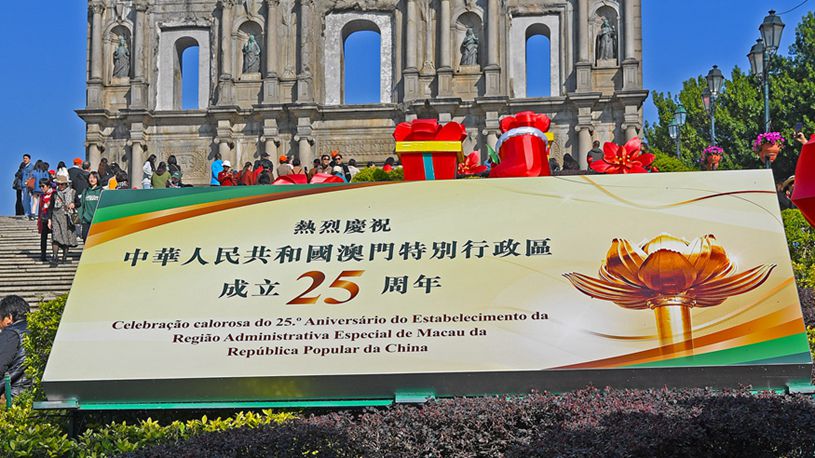Chinese buyers are open-minded when shopping for goods, home-made or imported
In recent years, there have been numerous buzzwords about Chinese people's consumption. From "over-shop" and "recommend goods" to "guochao" and "neo-Chinese style", Chinese consumers' needs and preferences are evolving, with previous stereotypes and labels fading away.
Consumption remains a major driver of China's economic growth. Amid ongoing efforts to boost consumption, it is very important to re-understand Chinese consumers.
Are Chinese consumers conservative?
Chinese consumers have long been stereotyped as "conservative" in their consumption habits. Is it true? Official data showed that China's passenger car sales reached 2.42 million units in November. The retail sales of new-energy vehicles (NEVs) in China hit 1.27 million units, accounting for 52.3 percent of the total retail sales of passenger cars in the country, surpassing fossil-fuel-powered vehicle sales for five consecutive months.
Chinese consumers' strong spending explains why NEV sales in China now lead the world. It has become a new feature of Chinese consumers who tend to accept new things.
In 2023, the size of the so-called smart-home market in China hit 710 billion yuan ($97.5 billion), with more than 260 million monthly active users of smart-home apps. China has become the world's largest consumer of smart-home solutions. In addition to smart terminals, digital consumption, and information consumption also posted fast growth, whereas caravan camping, low-altitude flights, "terrace economy" and other new business models are being cultivated rapidly.
Do Chinese consumers worship foreign brands?
Previously, Chinese consumers favored Australian dairy products and Japanese home appliances, but now horse-face skirts, neo-Chinese tea drinks, and the Chinese video game "Black Myth: Wukong" have emerged as new "guochao" trends, also known as "China chic," which are gaining international popularity.
Traditional culture's influence on consumer trends continues to evolve and expand. Concepts such as "Chinese style", "guochao," and "neo-Chinese style" have swept through a wide range of consumer fields including catering, entertainment, culture and tourism, beauty, and clothing.
One week after the screening of "To The Wonder" in May, searches for travel to Altay in Northwest China's Xinjiang Uygur Autonomous Region on China's online travel platform Tongcheng.com surged by 562 percent.
In August, "Black Myth: Wukong" sold an incredible 10 million copies in just three days, and quickly became popular in China and attracted many fans overseas. North China's Shanxi Province stands out with many of its locations featured in the game, achieving growth in tourist numbers and tourism revenue. Additionally, neo-Chinese tea drinks and wedding ceremonies that integrate traditional cultures and new trends frequently become popular. Chinese consumers are increasingly confident in their own rich culture.
Are Chinese consumers closed-minded?
At the recently concluded China International Import Expo, Chinese consumers were captivated by Thai rice, Chilean cherries, New Zealand kiwifruits, and US blueberries - products rich in local customs and global cultural heritage.
During the Double 11 (November 11) shopping spree this year, cross-border e-commerce has become a new growth driver, with Chinese e-commerce platforms launching numerous promotional events in markets such as the EU, the US, Japan, and South Korea, providing convenience and discounts to international consumers.
And, China's outbound travel continues to grow. During the National Day holidays this year, Chinese mainland residents made 7.59 million trips in and out of China, up 33.2 percent year-on-year.
According to the third-quarter financial results of domestic online travel agency trip.com, bookings for air tickets and hotels for outbound travel on the platform have grown to reach 120 percent of the corresponding period in 2019.
Opening-up is a defining feature of Chinese modernization. Chinese consumers are embracing the world with open arms, attracting global companies to enter China, helping deepen their localization strategies in China, and developing more products that meet the preferences of Chinese consumers.
Since the beginning of this year, dozens of global heads of multinational companies, such as Apple, Qualcomm, Mercedes-Benz, and Tesla, have intensively visited China. This is not only a vote of confidence in China's macroeconomic policy, but also a vote of confidence in the purchasing power of vast Chinese consumers.
Are Chinese consumers introverted?
When having delicious food, they often snap photos to share on WeChat Moments; they love to share life, and then enthusiastically recommend products on platforms like Xiaohongshu. Chinese consumers, once labeled as "reserved and restrained," are now highly enthusiastic about sharing on social media.
Reports show that WeChat has more than 1.38 billion monthly active users, with nearly 900 million users checking their Moments (a WeChat social networking function that allows users to post texts, images, and videos) daily. On the social media platform Xiaohongshu, there are more than 300 million monthly active users, with 70 percent using the search function multiple times a day.
On Chinese social media platforms, consumers are more willing to share feelings about their lives and consumption experiences, recommending to fellow social media users, and the consumers are eager to satisfy their emotional needs, as they prefer products that can bring a sense of happiness.
From live-streaming e-commerce to new consumption philosophies like "meme-based consumption" and "self-consumption," the changes reflect new characteristics of Chinese consumers: seeking personalization, diversity, and quality. Not only the youth are keen on self-expression and social recognition, but Chinese elderly consumers are playing an active role too, forming their own consumption trends.
Today, Chinese consumers need to be re-evaluated. They are eager to embrace and foster innovation; they are increasingly confident; they have a broader vision, open to buying global products; and are enthusiastic about sharing, and promoting nice products globally. To sum it up, the Chinese market is massive, dynamic, innovative, and increasingly high-quality.
The story was originally published on people.com.cn on December 12, 2024
Photos
Related Stories
- Firms in high gear for year-end sales
- China’s Double 12 shopping festival set to boost consumption with trade-in policies
- China's trade-in program boosts consumer goods sales by over 1 trillion yuan
- Seven ministries launch joint plan to drive retail industry upgrade amid efforts to boost consumption
- Nation intensifies efforts to boost consumption as trade-in policies strengthen market impact
Copyright © 2024 People's Daily Online. All Rights Reserved.









